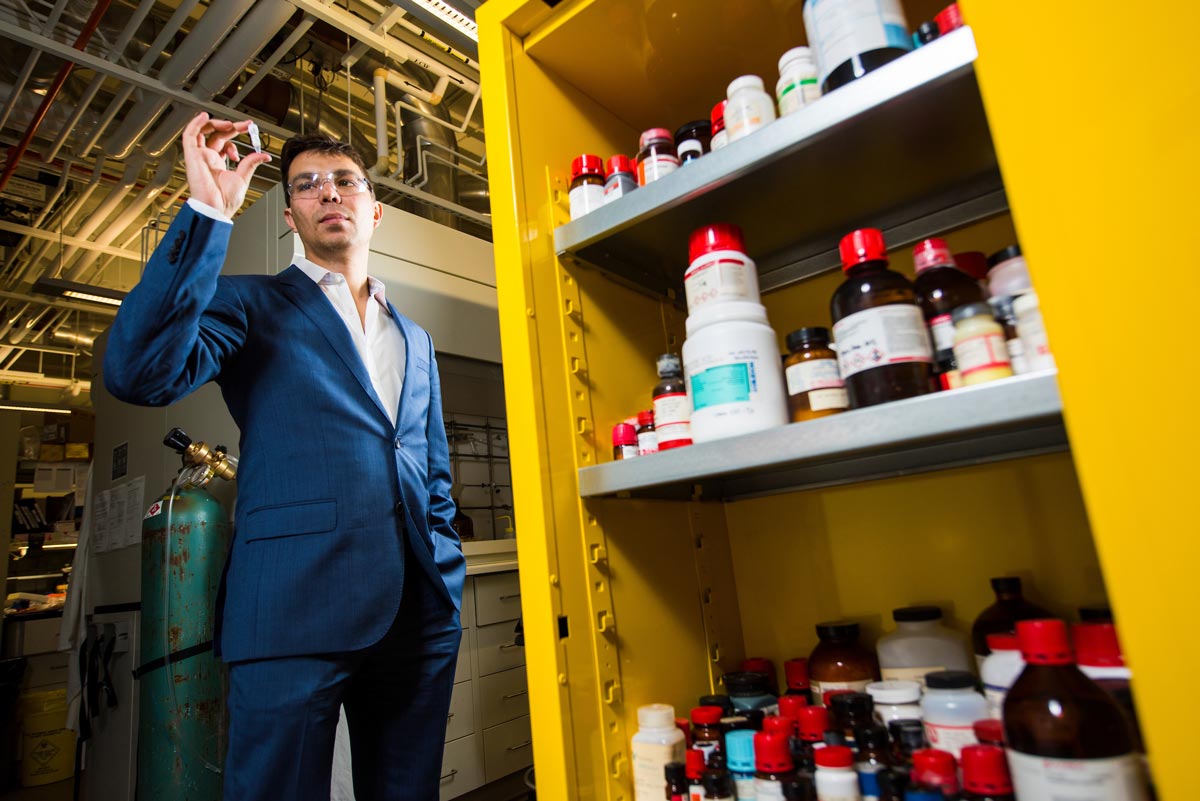
Ratmir Derda, assistant professor with the Department of Chemistry, uses the power of Google to push the boundaries of chemical biology.
Ratmir Derda, assistant professor with the Department of Chemistry at the University of Alberta, is using the power of large-scale information management and big data to answer some of the most pressing questions in chemical biology research today, such as simple diagnostic tests for tuberculosis.
Rather than systemically probing chemicals one by one, Derda and his research group are using the tools of genetics, such as next-generation sequencing, data mining and search management, in the same way that these tactics employed are employed by large search engines like Google.
"Google really changed the way many things are done in our modern life," explains Derda. "If you want to check the spelling of a word or the correctness of a sentence, it is common to just look it up. Access to data reshapes entire scientific fields. It is hard to imagine a research community that would not benefit from the ability to produce and analyze large amounts of genetic data."
The chemical internet
"This could change the way that we formulate and solve problems in chemistry and chemical biology." -Ratmir Derda
"We are trying to develop a similar type of search strategy in chemistry. But rather than looking on the Internet, we'll be looking in the space of molecules and reactions"
The requirements, he explains, are relatively simple: an "internet" of information units, in this case, molecules; an information tagging system based on genetic code; and a tool through which to analyze and search the data.
"Today one can sequence an entire genome in a matter of hours. We repurpose these tools to gain a very different way to handle chemical information," says Derda. "If we wish to find a certain chemical reaction of substrate, we assess all chemicals at once, instead of the conventional, linear approach."
The biggest challenge is the same one that search engines like Google face every day: information sorting. How does one ensure the information the search engine provides is both correct and relevant to the question?
"This is a problem of large-scale information handling, and we can use those tools to help solve it," explains Derda. "This could change the way that we formulate and solve problems in chemistry and chemical biology."
Award-winning work
His search for new research directions at the intersection between chemical biology and large-scale information handling has not gone unnoticed by the research community. On Oct. 25, Derda will receive the Young Chemical Biologist 2016 Award from the International Chemical Biology Society.
"This is well-deserved recognition for one of our most promising junior faculty members," says Fred West, chair of the Department of Chemistry with the Faculty of Science. "The Young Chemical Biologist Award singles out young chemical biologists who are having an outsized impact on their field."